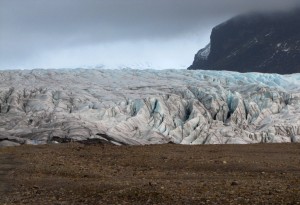The Glacier Lab is a team of researchers who study the societal dimensions of ice, snow, climate, and oceans. Research spans from the Andes, Alaska, and the Pacific Northwest to the Arctic and Antarctica. In addition to each member’s individual undergraduate, graduate, and faculty research projects, the Lab prioritizes interdisciplinary and collaborative projects. The goal is to unite groups of researchers, including those at multiple career stages—from undergraduates to senior faculty and everything between—and those spanning multiple disciplines across the humanities, social sciences, and natural sciences. These collaborations reflect The Glacier Lab’s core research principles, which center environmental and climate justice in communities, anti-colonial and feminist methodologies, and critical human-environment studies.
APPROACHES
Glacier Lab research puts people first to understand larger societal histories and contexts where people interact with glaciers and icebergs. Research seeks to understand forces of inequality and injustices that make glacier change just one among many forces that societies contend with. The lab works to expose how systemic power disparities and the marginalization of certain knowledges can affect people’s ability to address ice loss in their communities. In this way, the lab’s approach to glaciers and climate is through an environmental justice framework grounded in environmental history, political ecology, and science and technology studies (STS).
Lab research also examines how larger narratives of ice loss can help some groups more than others. Narratives shape people’s constructions of and interactions with high-elevation and high-latitude locations. Unfortunately, local people rarely figure substantively into the widespread laments for dying ice. Worse, narratives and storylines about endangered ice can actually feed the forces of conquest, individualism, commodification, consumption, and extraction — the very forces driving global climate change in the first place. Addressing the profound human consequences of the climate crisis and the shrinking cryosphere means the lab is attentive to culture, narratives, framings, and perceptions. Research thus analyzes glaciers and society through the lens of the environmental humanities.
PRINCIPLES
With lab members from History, Geography, Environmental Studies, and Anthropology, research projects are strongly interdisciplinary — and this is a priority for the lab overall. There are collaborations beyond the lab across disciplines and fields, with co-authors who are glaciologists, oceanographers, hydrologists, and climatologists, as well as philosophers and sociologists, just to name a few. There are also collaborations with researchers worldwide, from the USA and Switzerland to Peru and Greenland. The lab also prioritizes inter-generational teamwork to include researchers at different career stages — and especially students — in projects and publications. In short, the lab strives for equity and inclusion among its members, with a commitment to shared opportunities, credit, and professional development.
TOPICS
These are the various Glacier Lab guiding principles and approaches that structure research ethics and practices. The specific themes and topics for research vary widely and constantly shift with new students’ interests and plans. Explore the pages in this section to discover more about what we are studying.
